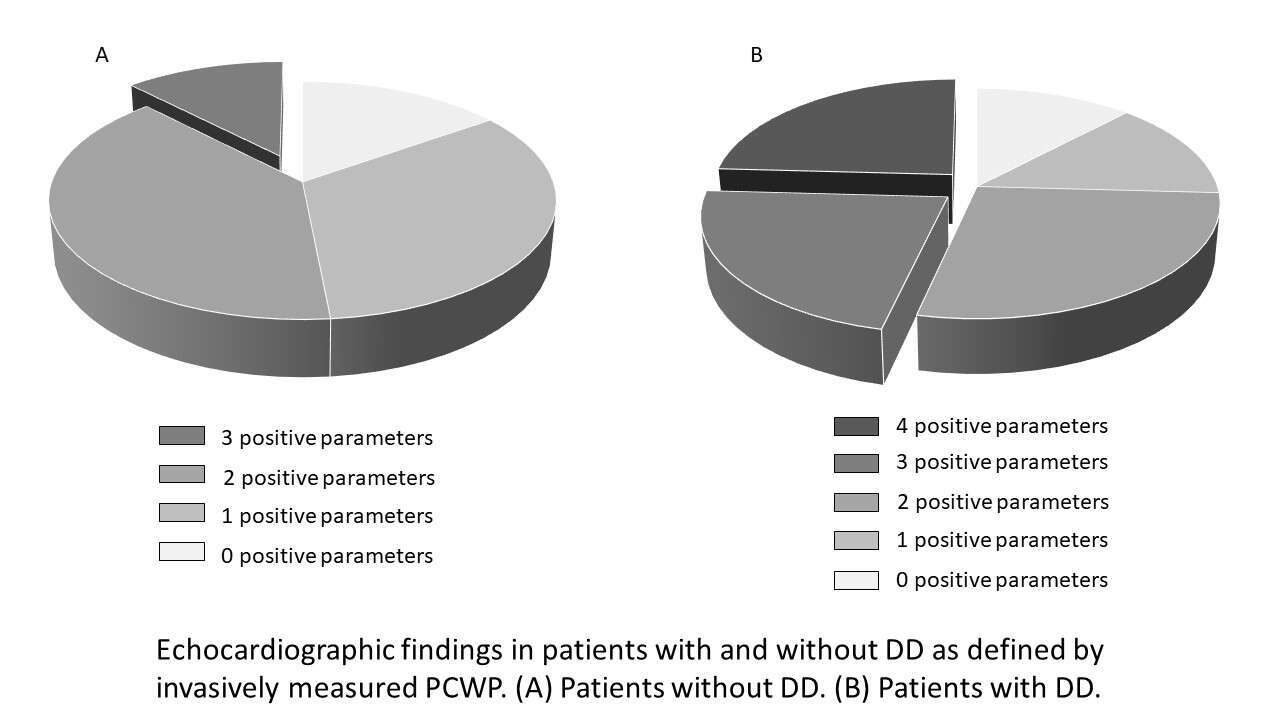
Echocardiographic Criteria for Diastolic Dysfunction are Neither Sensitive nor Specific Compared with Invasive Measurement of PCWP at Rest and Exercise
2Sackler School of Medicine, Tel-Aviv University
Background: The diagnosis of diastolic dysfunction (DD) remains elusive and controversial. The American Society of Echocardiography and the European Association of Cardiovascular Imaging recently published criteria which combine several parameters for the diagnosis of DD. The purpose of this study was to evaluate the accuracy of the echocardiographic criteria compared with invasive assessment of pulmonary capillary wedge pressure (PCWP) at rest and after exercise stress.
Methods: Rest PCWP, exercise PCWP and echocardiography were evaluated in 91 consecutive patients (age 62±17 years, 66% women). Patients were divided into two groups based on the presence of DD as defined by PCWP: 1) Group 1 without DD (33 patients with resting PCWP ≤15 mmHg and exercise PCWP < 18); 2) Group 2 with DD (58 patients with resting PCWP > 15mmHg and/or exercise PCWP ≥18).
Results: Echocardoiographic criteria (3-4/4 criteria) were positive for DD in 12.1% of group 1 patients and in 46.6% of group 2 patients. Prevalence of DD in patients without echocardiographic evidence of DD (0-1/4 criteria) was present in 48.4%. A similar prevalence of DD was observed in patients with indeterminate findings on echocardiography (2/4 criteria), 55.2%. In patients with echocardiographic evidence of DD (3-4/4 criteria), DD was present in 87.1%.
Conclusion: Patients with 3-4 echocardiographic criteria for DD are very likely to have elevated PCWP at rest or exercise. However, the criteria are neither sensitive nor specific, and miss about 50% of patients with invasively proven DD.
Powered by Eventact EMS